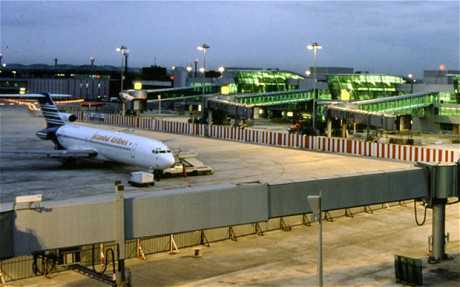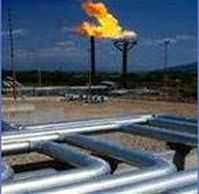Turkey to ship 10bn cubic metres of Azerbaijani gas
A senior SOCAR official has briefly outlined agreements between Azerbaijan and Turkey on the purchase, sale and transit of gas.
Elshad Nasirov, vice-president of state oil company SOCAR, said that under one agreement signed last week Turkey will purchase 6.6bn cubic metres of gas from Azerbaijan per annum, while under a framework agreement on gas transit 10bn cubic metres of Azerbaijani gas will be transported to Europe via Turkey, APA reported.
“The transit agreement with Turkey signed on 25 October in Izmir envisages the reconstruction and expansion of the existing gas infrastructure,” Nasirov said. He confirmed that the consortium to export gas to Europe, produced as part of stage two of development of Azerbaijan’s Shah Deniz field, would be selected by the end of the year.
The Nabucco, ITGI and TAP pipeline consortiums have all bid to export Azerbaijan’s gas, while Shah Deniz operator BP has come up with a fourth export option, should none of the three be suitable.
Elshad Nasirov said, meanwhile, that a new consortium would be created to construct a planned pipeline from the Georgian border to Turkey’s western border.
“Membership of the consortium will depend on the choice of the government of Azerbaijan and the desire of the companies participating in the Shah Deniz project, while one of the Turkish companies will be nominated by the Turkish government,” Nasirov said.
He said the choice of route across Turkey for the new pipeline would depend on commercial considerations.
“In order to transport Azeri gas to Europe we must select the best route. We’re not talking only about Shah Deniz, but also about gas extracted from other deposits in Azerbaijan,” APA reported Nasirov as saying.
“In the final analysis, the option that brings the greatest economic benefit will be chosen.”
Shah Deniz costs
The final investment decision on the second stage of development of the Shah Deniz gas condensate field will be made in 2013, Elshad Nasirov said.
He confirmed that the first gas from Shah Deniz II would be produced in 2017.
Meanwhile, BP-Azerbaijan’s chief financial officer, Ian Sutherland, said that BP had increased the cost of developing Shah Deniz, ABC/Fineko reported.
He told a conference in Baku on Wednesday on “The State Oil Fund’s Role in the National Oil Strategy of Azerbaijan” that $23bn was needed to take gas production in Azerbaijan to 26bn cubic metres per year.
Earlier cost estimates for Shah Deniz II did not exceed $22bn.
As part of Shah Deniz II, 16bn cu.m of gas are to be produced per annum. As part of Shah Deniz I, 10bn cu.m are to be produced, although this figure has not been achieved yet.
Elshad Nasirov reminded journalists today that at present Azerbaijan exports 6.6bn cu.m of gas to Turkey, 1.5bn to Georgia, 400m to Iran and 750m to Greece. Azerbaijan exports gas to Russia too.
The Shah Deniz consortium consists of BP (operator, 25.5%) StatoilHydro (25.5%), SOCAR (10%), LUKOIL (10%), NICO (10%), Total (10%), and TPAO (9%).
www.news.az
via Turkey to ship 10bn cubic metres of Azerbaijani gas : Center for Economic and Social Development (CESD).





